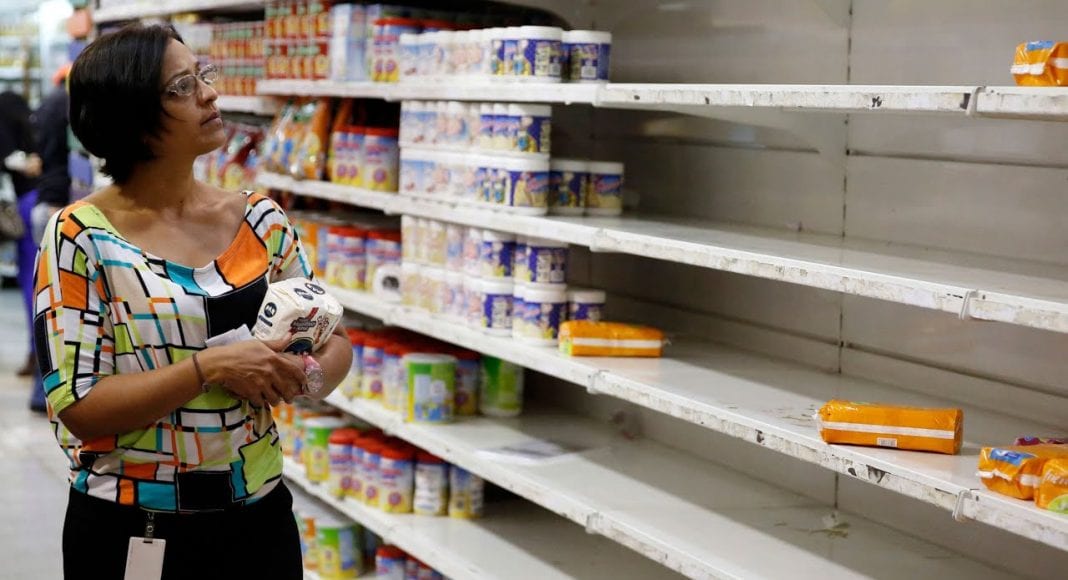Venezuela enjoys the largest proven oil reserves in the world. According to OPEC’s 2018 Annual Statistical Bulletin, some of Venezuela’s natural resources include gas, iron, gold, bauxite, and diamonds. Its economy, however, is spiraling downward with no end in sight, said Dialogo, a magazine published by U.S. Southern Command, in a July 5 report.
With these indicators, in 1997, Venezuela showed great promise as a future major economy in the hemisphere. Problems started in 1998 with Hugo Chávez’s presidency, and began freefalling in 2013, when illegitimate President Nicolás Maduro took office. In April 2019, the price of a basic food basket for five people reached $91, which means that a family would require 21.4 minimum wages just to cover their basic food needs.
“If we consider a household with two working people, that income is only enough to buy food for 4.5 days each month. There is no money left to buy food for the remaining 24.5 days, much less for basic services, such as medicine and rent, according to the Venezuelan nongovernmental organization Documentation and Analysis Center for Workers (CENDA, in Spanish),” Dialogo reported.
In May 2019, the Central Bank of Venezuela revealed, after almost four years of silence, that the country’s Gross Domestic Product fell by 22.5 percent. Even popular dishes like arepas, a staple of Venezuelan cuisine, are now famous for the historically high prices of their ingredients, said Venezuelan newspaper El Nacional, which Maduro closed in December 2018, but which still operates as an online platform from abroad. In December 2018, an arepa viuda (without filling) cost $6. In contrast, in 1997, an arepa cost $0.60, the newspaper said.
“Instead of arepas, I feed pasta to my children, because that’s what I can afford,” said housewife Andrea Durán to TV Venezuela in Caracas, on June 7. “Giving them food with protein is history.”
Dialogo said since 1998, the industrial sector has fallen by 95 percent, resulting in unemployment, indicated radiorumbos.net, the online site of the Venezuela radio station. “But if there’s a political change, 42 percent of Venezuelan manufacturers would make new investment in their companies,” said Venezuelan industry group CONINDUSTRIA.



